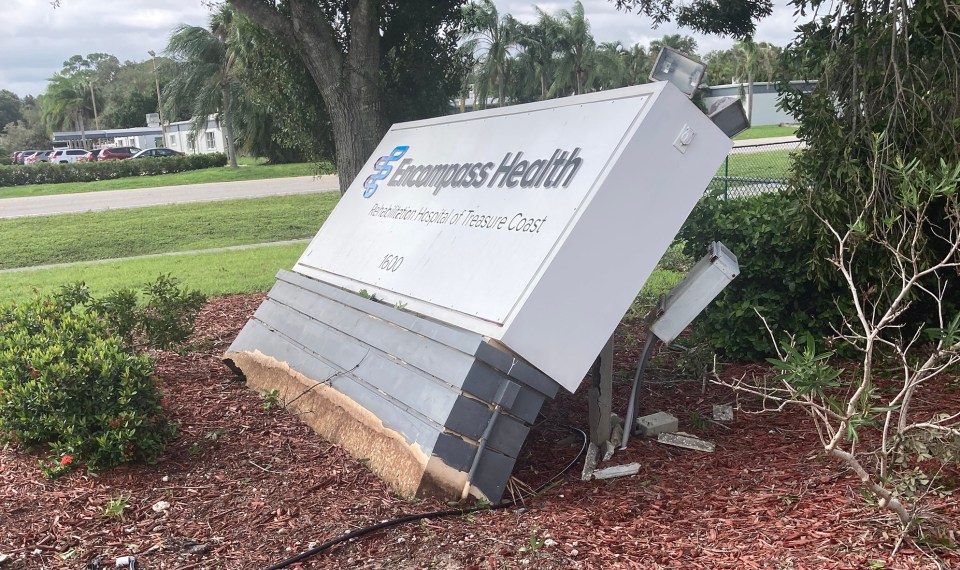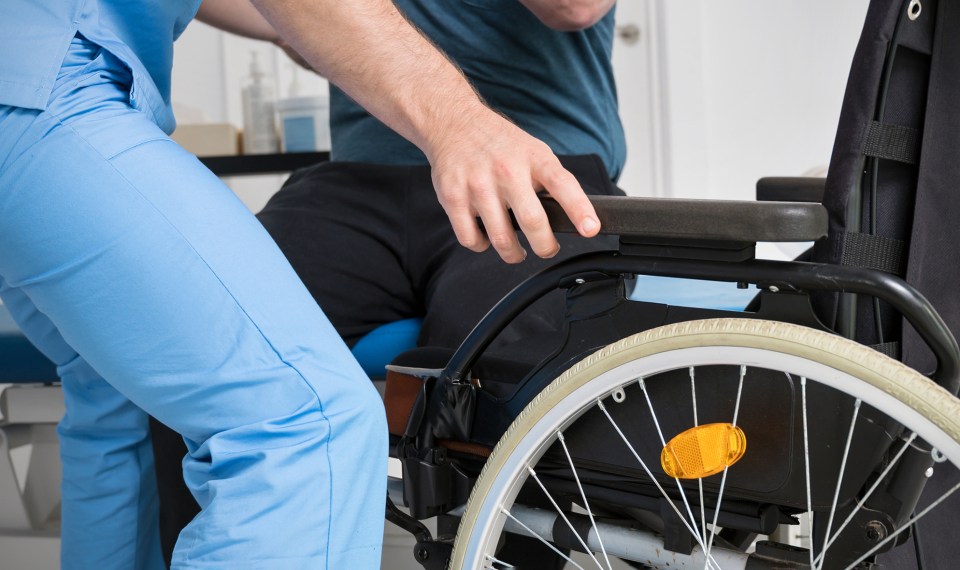Hurricanes, tornadoes and other weather emergencies are common occurrences, but the impact they can have on patient care and safety in the hospital setting can cause challenges. With the proper resources and emergency planning, however, the critical care that patients deserve can continue.
Disaster preparedness should be part of a hospital’s strategic plan to mitigate the impact of a natural disaster and ensure that patient care is not interrupted and staff is supported. Encompass Health has more than 165 inpatient rehabilitation hospitals, many located in coastal areas impacted by hurricanes, making disaster preparedness a high priority.
Michelle Atkinson, chief nursing officer at Encompass Health Rehabilitation Hospital of Naples in Florida, said an effective plan includes preparing well ahead of time and constant communications with local authorities and weather agencies, as well as staff, patients and their loved ones.
Atkinson is no stranger to natural disasters. In 2024 alone, she helped prepare her hospital and staff for two major hurricanes—one of which required the evacuation of patients.
Preparing for a Natural Disaster
Early in the hurricane watch, hospital, regional and corporate leaders meet to assess risk and determine the needs of each location within the storm’s path. They then work together to decide which hospital has the capacity to accept more patients, has available resources to provide quality care to patients,and is best able to support the services needed by each patient.
“Before the hurricane makes landfall, we start our emergency response plan early in the hurricane watch and make sure our hospitals have clean water for a minimum of seven days and other materials such as IVs, fluids and medications to sustain our patients,” she said.
Atkinson said close attention is given to the patient population and what their unique needs may be, so each hospital can be equipped with the proper resources ahead of landfall. “We communicate with our sister hospitals to determine what resources they need and if we can allocate resources to sustain patients.” For example, after Hurricane Milton, Atkinson’s hospital had a disruption in delivery services, which created a shortage of blood tubes. The hospital was able to coordinate with a nearby Encompass Health hospital to obtain the much-needed supplies, Atkinson said.
The care team must also be equipped to handle patient overflow or evacuation. When one hospital has to evacuate due to being in high-risk area, other hospital locations take on those patients so care can resume.
“During Milton, Encompass Health Rehabilitation Hospital of Cape Coral had to evacuate its patients, and the leadership team assessed each patient’s needs to determine which hospital was the best location to continue quality care for the patient,” Atkinson said. “Constant communication between the hospitals and caregivers provides a smooth transition in care and helps ensure the safety of each patient.”
“We collect data on the patients in our hospital to determine what materials or resources we need, who would be ready to discharge home and who needs to be evacuated to another Encompass Health hospital,” Atkinson said. “If the patient is ready for discharge, the families decide whether they want the patient to be evacuated or whether they want the patient to shelter in place with their loved ones.”
Updating Patients and Their Loved Ones
During a weather emergency, a hospital may be placed on lockdown, meaning the hospital is no longer open to outside guests. Atkinson said that during these times it’s important to keep patients, as well as their loved ones, well informed and in constant communication.
“We don’t want people driving in hazardous conditions, so we make daily phone calls to the family, preferably with the patient in the room, to let them know that their loved one is OK,” Atkinson said. “We’ve had positive patient outcomes with emergency response planning and keeping families and patients informed.”
Keeping Staff Informed
Updating staff on weather emergencies and planning is also a key component of disaster preparedness. At Encompass Health hospitals, leadership sends out communications to help prepare staff for their shifts, which may require overnight stays, depending on weather conditions.
Prior to a hurricane making landfall, employees are notified in advance to prepare to shelter at the hospital for multiple days, should conditions require it. During Hurricane Milton, staff were notified 10 to 12 hours prior to their shift that the hospital staff would be sheltering in place. This gave staff an opportunity to prepare their families and pack basic necessities, Atkinson said.
“If you have never lived in Florida, a hurricane is unique, and it’s something that I like to talk staff through,” Atkinson said. “It’s not like a snow storm where the storm hits, and the roads are cleared quickly, usually within the same day. With a hurricane, there is a possibility that you will be sheltered in place for two to three days. We want to make sure our employees feel safe and prepared and that we have a great plan in place.”
With a disaster preparedness plan in place, Atkinson said her hospital, as well as other Encompass Health locations in the path of a hurricane, have been able to weather the storms, while continuing patient care.
The content of this site is for informational purposes only and should not be taken as professional medical advice. Always seek the advice of your physician or other qualified healthcare provider with any questions you may have regarding any medical conditions or treatments.



